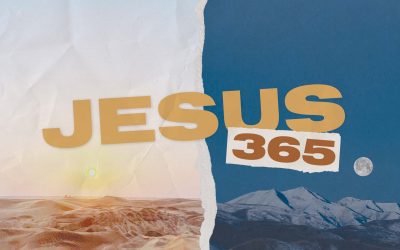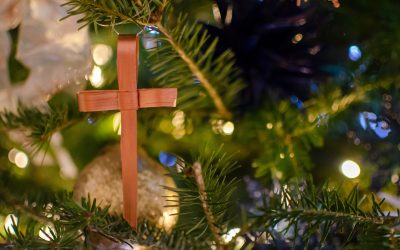On June 5-9, we took seventeen Middle School Students to camp at Crossings Camp in Southwest Kentucky. The week was full of activities, zip lines, water sports, worship, and Bible study. The theme Tim Harris, the camp pastor, selected for the week was “I Am Moses.” It was a look into the conflicts Moses faced in his life that illustrate how to deal with conflict in our own lives. First, we saw Moses’ confrontation with God through the burning bush and what God was calling him to do. Next, we saw Moses’ conflict with the Israelites and their struggle to desire to be set free from bondage. Finally, we saw Moses’ battle with Pharaoh. But the one that grabbed my attention was what Tim spoke about on the 3rd evening of camp.
He directed us to Exodus 15:
“22 Then Moses led Israel on from the Red Sea, and they went out to the Wilderness of Shur. They journeyed for three days in the wilderness without finding water. 23 They came to Marah, but they could not drink the water at Marah because it was bitter — that is why it was named Marah. 24 The people grumbled to Moses, “What are we going to drink?” 25 So he cried out to the Lord, and the Lord showed him a tree. When he threw it into the water, the water became drinkable. The Lord made a statute and ordinance for them at Marah, and he tested them there. 26 He said, “If you will carefully obey the Lord your God, do what is right in his sight, pay attention to his commands, and keep all his statutes, I will not inflict any illnesses on you that I inflicted on the Egyptians. For I am the Lord who heals you.” 27 Then they came to Elim, where there were twelve springs and seventy date palms, and they camped there by the water.” — Exodus 15:22-27 (CSB)
The Israelites came to a place where they needed rest; they needed water; they needed God to provide for them. But God, as He often does, was working to teach them more than to rely on Him for their physical needs. Marah, the Hebrew word for “bitter,” was an oasis where the water was undrinkable. It is a place that no one stays, but they move forward, searching for clean water and can help sustain life. So God led the Israelites here to show them that just because a place looks good does not mean it is a place we should stay and dwell.
Moses called out to God in verse 25 because they needed to drink the water to survive. God provides a branch that makes the water drinkable, but it does not mean this place is worthy of staying. God has something better for them. He has Elim – an oasis that had two springs and over seventy palms. Shade and water! For the Israelites to get to Elim, they had to go through Marah. They had to see that bitterness is not a place you want to dwell.
The Israelites had been dwelling in bitterness while living in Egypt. They had been in bondage for hundreds of years. But to get out of bondage, they had to go through Marah. They had to take steps through their feelings and bitterness to get to a life-giving and peaceful place.
Marah represents the times in life that are tough, difficult, the test us – the times that require faith.
Elim represents the places of rest and refueling, where God gives us what we need to continue our pursuit of Him.
When we are tested, we must be careful that we do not allow that bitterness to stick with us when times are tough. Instead, we must put it aside and have faith in God and trust his work in our lives. When we hold on to bitterness, it turns into hate. “Bitterness causes you to take the pain of yesterday and carry it into today.” – Tim Harris.
When we hold onto the things that happen to us, the things people say to us or do to us, we bring unnecessary pain into our lives today that we should leave in yesterday. But how do we let go? How do we move forward? If we can’t learn how to move forward, then everywhere we go becomes a Marah in our life.
Tim Harris said, “you forgive and forget by practicing to forgive and forget.” His point here was that we will continue to bring yesterday’s pain into today unless we practice little by little each day to forgive and move forward. But the more we practice forgiving and moving forward, the easier it becomes.
Yahweh Rafa means the Lord Hears you. Rafa is a name for God that tells us he is a God who wants to fix broken things, to put broken things back in place. Let God be Yahweh Rafa for you today and every day. He is the only one who can put the pieces back together. Trust in Him. Incorporate more of Him into your life so you can leave Marah and camp in Elim.
Nick Campbell
Minister to Students and Families
Central Bearden




0 Comments